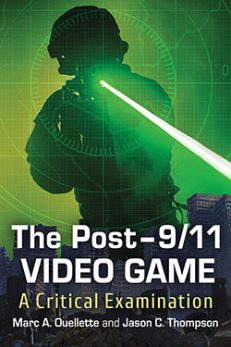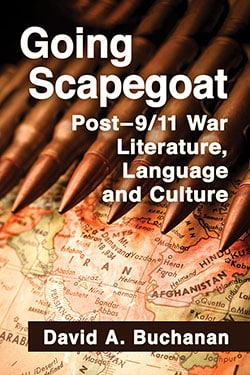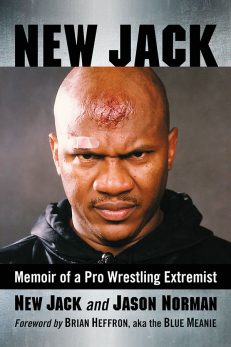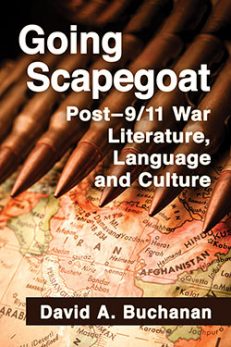Subtotal: $19.99
Going Scapegoat
Post–9/11 War Literature, Language and Culture
Original price was: $39.95.$19.99Current price is: $19.99.
In stock
About the Book
Since 9/11, war literature has become a key element in American popular culture, spurring critical debate about depictions of combat—Who can write war literature? When can they do it? This book presents a new way to closely read war narratives, questioning the idea of “combat gnosticism”—the belief that the experience of war is impossible to communicate to those who have not seen it—that has dominated the discussion. Adapting Kenneth Burke’s scapegoat mechanism to the criticism of literature and film, the author examines three novels from 2012—Ben Fountain’s Billy Lynn’s Long Halftime Walk, David Abrams’s FOBBIT and Kevin Powers’ The Yellow Birds—that represent the U.S. military responses to 9/11.
About the Author(s)
Bibliographic Details
David A. Buchanan
Format: softcover (6 x 9)
Pages: 232
Bibliographic Info: notes, bibliography, index
Copyright Date: 2016
pISBN: 978-1-4766-6658-7
eISBN: 978-1-4766-2673-4
Imprint: McFarland
Table of Contents
Acknowledgments vi
Introduction: The Resilience of Racist Language, Symbols and Rhetoric 1
One: Literature, Criticism and the Fetishization of Experience 15
Two: Kenneth Burke: A Method for War Literature 47
Three: Confounding Expectations in Kevin Powers’s The Yellow Birds 61
Four: The Comic Corrective and Ben Fountain’s Billy Lynn 96
Five: The Convenient Scapegoat in David Abrams’s FOBBIT 122
Six: Representing Hajji: This Generation’s Enemy “Other” 155
Conclusion 195
Chapter Notes 203
Bibliography 209
Index 221
Book Reviews & Awards
“a fresh perspective to interpret war narratives”—Communications Booknotes Quarterly.

 The Post–9/11 Video Game
The Post–9/11 Video Game 






